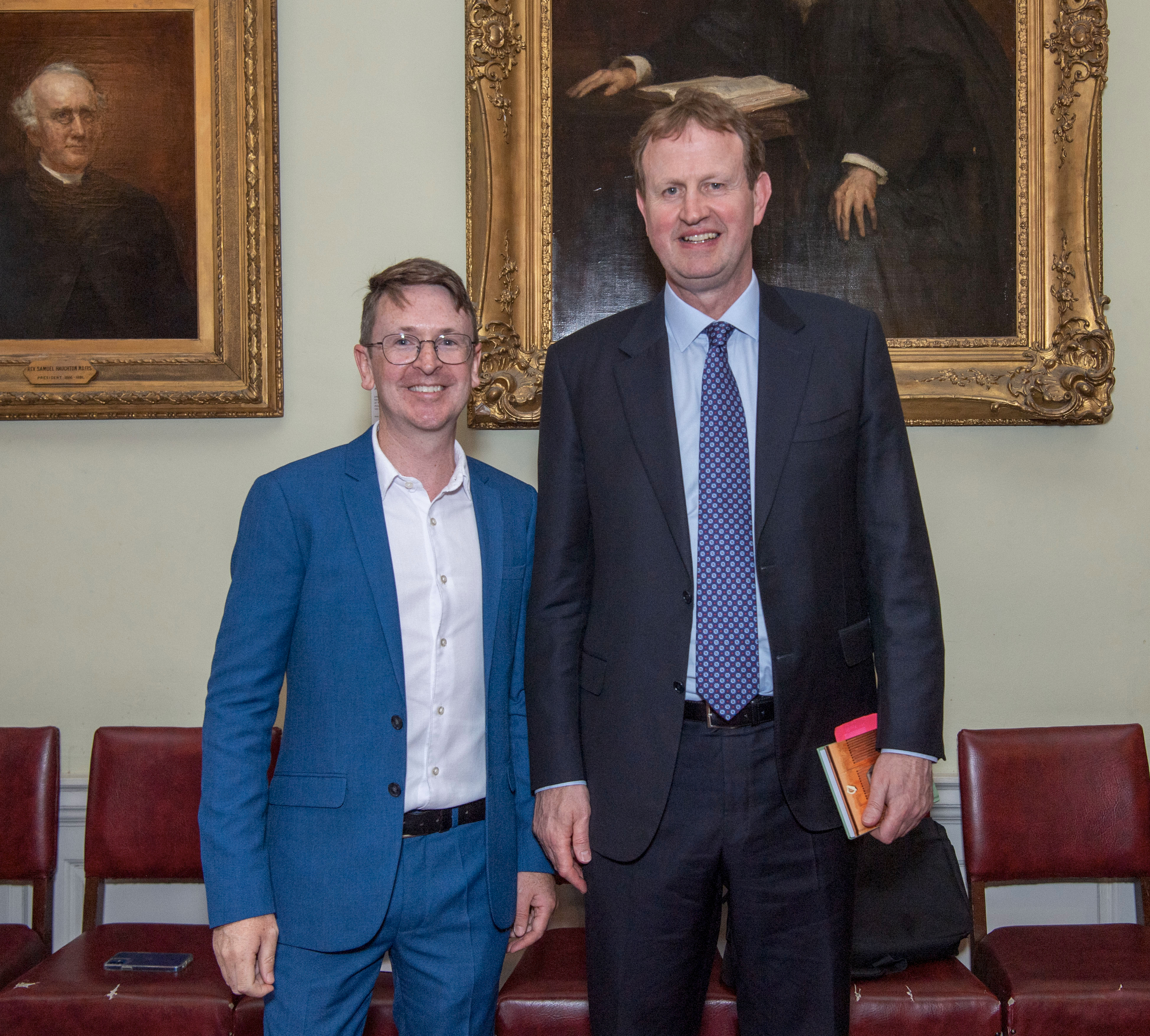New book analyses judges’ decision-making in sentencing serious sexual offenders

Pictured (left–right): Dr Diarmuid Griffin of University of Galway School of Law with justice minister Jim O'Callaghan.
A new book analysing sentencing in cases of serious sexual offences and exploring the factors that influence the decision-making of judges has been formally launched by justice minister Jim O’Callaghan.
Sentencing Serious Sex Offenders: How Judges Decide When Discretion is Wide, published by Policy Press, presents research carried out by Dr Diarmuid Griffin, a lecturer in criminology and criminal law at University of Galway School of Law.
Looking at more than 100 court cases from 1985 to 2022, it examines sentencing resulting in 15 years’ imprisonment up to, and including, life imprisonment in sexual offences cases.
The research explores the factors that influence judges to impose a sentence of long-term imprisonment in serious sexual offence cases.
Judges have made it clear that sentences of 15 years to life imprisonment are to be reserved for offending that is “truly egregious”.
Mr O’Callaghan said: “Dr Griffin has produced very important data and analysis of sentencing patterns in relation to sexual offences, at the upper end. This research provides policy makers with a solid basis to develop policy into the future.
“Of particular note are Dr Griffin’s findings that show a significant level of consistency in sentencing which can be attributed, at least in part, to the fact that a relatively small number of judges deal with the most serious sexual offences in the Central Criminal Court.
“This is an important finding which challenges the narrative of inconsistency in sentencing, at least in relation to these offences, and shows the value of the experience gained over many years dealing with a particularly challenging category of offences.
“I am very pleased to launch Sentencing Serious Sex Offenders: How Judges Decide when Discretion is Wide and I welcome its publication.”
Dr Griffin said: “How and why judges decide to impose a particular sentence in an individual case has become a topic of intense public interest but there are few studies examining sentencing decision-making.
“This book provides an opportunity to broaden and deepen the discourse on sentencing.”








